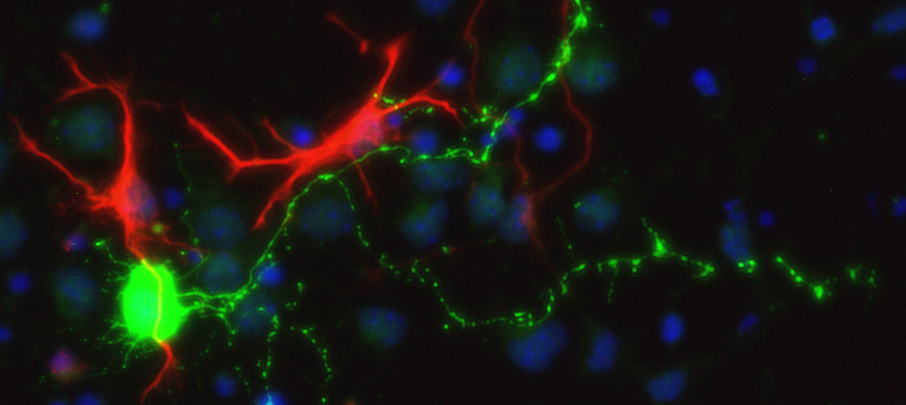Tag: Research
-

Cilia Defects Linked to Schizophrenia
Mutations in PCM1, a gene involved in the formation of cilia, were linked with schizophrenia in a variety of animal models and in human genome analysis, according to a recent study.
-

COVID-19 Symposium Promotes Collaborative Research and Educational Opportunities
The Northwestern University Clinical and Translational Sciences (NUCATS) Institute hosted the first virtual COVID-19 symposium, which gave the Northwestern research community an opportunity to learn about efforts to advance public health and respond to the COVID-19 pandemic.
-

Uncovering the Impact of Protein Mutations in Parkinson’s
Northwestern scientists have determined how two protein mutations responsible for the impaired motor function in Parkinson’s disease independently disrupt neuron activity.
-

New Path Forward for Pancreatic Cancer Treatment
Combining the current standard-of-care chemotherapy drug with a genetic inhibitor may improve treatment for pancreatic ductal adenocarcinoma, according to a recent study published in PNAS.
-

Investigating the Biology of Aging
Feinberg investigators are breaking down the mechanisms of aging and designing solutions to extend healthy living.
-

Proteins on Neuron Surfaces Prove Pivotal for Communication
A cell-surface protein is essential for proper microcircuit function in the brain, according to a study published in Nature Communications.
-

McNally Discusses COVID-19 Antibody Study Results, Next Steps
During a recent webinar, Elizabeth McNally, MD, PhD, the Elizabeth J. Ward Professor of Genetic Medicine and director of the Center for Genetic Medicine, discussed findings from the ongoing Screening for Coronavirus Antibodies in Neighborhoods (SCAN) study and what genetics can reveal about COVID-19.
-

Viral Protein Rewires B-Cells to Promote Infection
A viral protein of the Epstein-Barr virus previously thought to mimic immune cell receptor signaling actually rewires intracellular signaling in infected cells, promoting viral cell survival and proliferation.
-

Astrocytes Play Unexpected Role in Parkinson’s Disease
Astrocytes may play a protective role in Parkinson’s disease, slowing alpha-synuclein accumulation in neurons, according to a study published in The Journal of Neuroscience.
-

Medical Student Discusses Neurosurgery Research
Nathan Shlobin, a second-year medical student, was the first author of a study recently published in the Journal of Neurosurgery, which identified through systematic review potential risk factors for spinal cord ischemia related to anterior thoracolumbar surgery.






